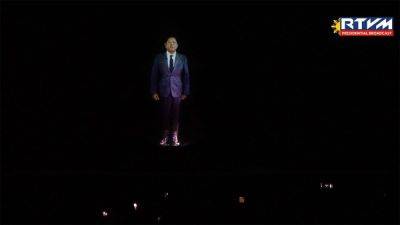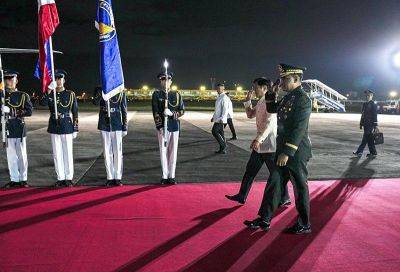For loyal fans, Pinoy radio dramas live on
MANILA, Philippines — Standing in front of a microphone, voice actor Phil Cruz pretends to wield an amulet to defeat the Devil for the latest instalment of one of the Philippines’ few surviving radio dramas.
Cruz is part of a small team of voice actors and technicians producing shows that are broadcast in Tagalog by dzRH, one of the oldest radio stations in the country.
Radio dramas were the main source of entertainment for Filipino families after World War II, just like the rest of the world, but their popularity faded with the rise of television, social media and video livestreaming.
Many longtime listeners, including retirees, farmers, factory workers and taxi drivers, still tune in to catch the latest episode of their favorite horror or drama.
“We’re the only ones left,” Cruz, 64, said during a break in recording at a modern studio incongruously located in a Manila theme park.
Cruz followed his father into voice acting in 1979, back when DZRH aired 18 drama programs over nine hours a day in stiff competition with other broadcasters.
Now it produces seven.
Among them is “Night of Horror,” the station’s oldest series that has been terrifying audiences for 66 years with tales of devils, vampires and murderous skeletons.
Love, family and poverty are among the themes tackled in other long-running dramas, such as “You’re My Only Life” and “This Is Our Life.”
Gerry Mutia produces the sound effects that help listeners visualize the stories and, while many can be computer-generated, he still prefers “the old way.”
Mutia keeps a box of objects in the studio to simulate sounds: coconut shells for galloping horses, a door bolt for the cocking of a gun and stamping his feet in a box of leaves for footsteps in a forest.
He even uses his own voice for a cat’s meow.
“The computer can replicate the sound of a slap but it is more realistic doing it the old way,” said Mutia, demonstrating by striking together a pair of old rubber shoe soles.
The beauty of radio was that it reached “everyone, even the poor,” said Rosanna Villegas, 63. She, like Cruz, followed her radio actor father into the industry.
“It’s a means of entertainment, which comes on top of what they watch on TV or







